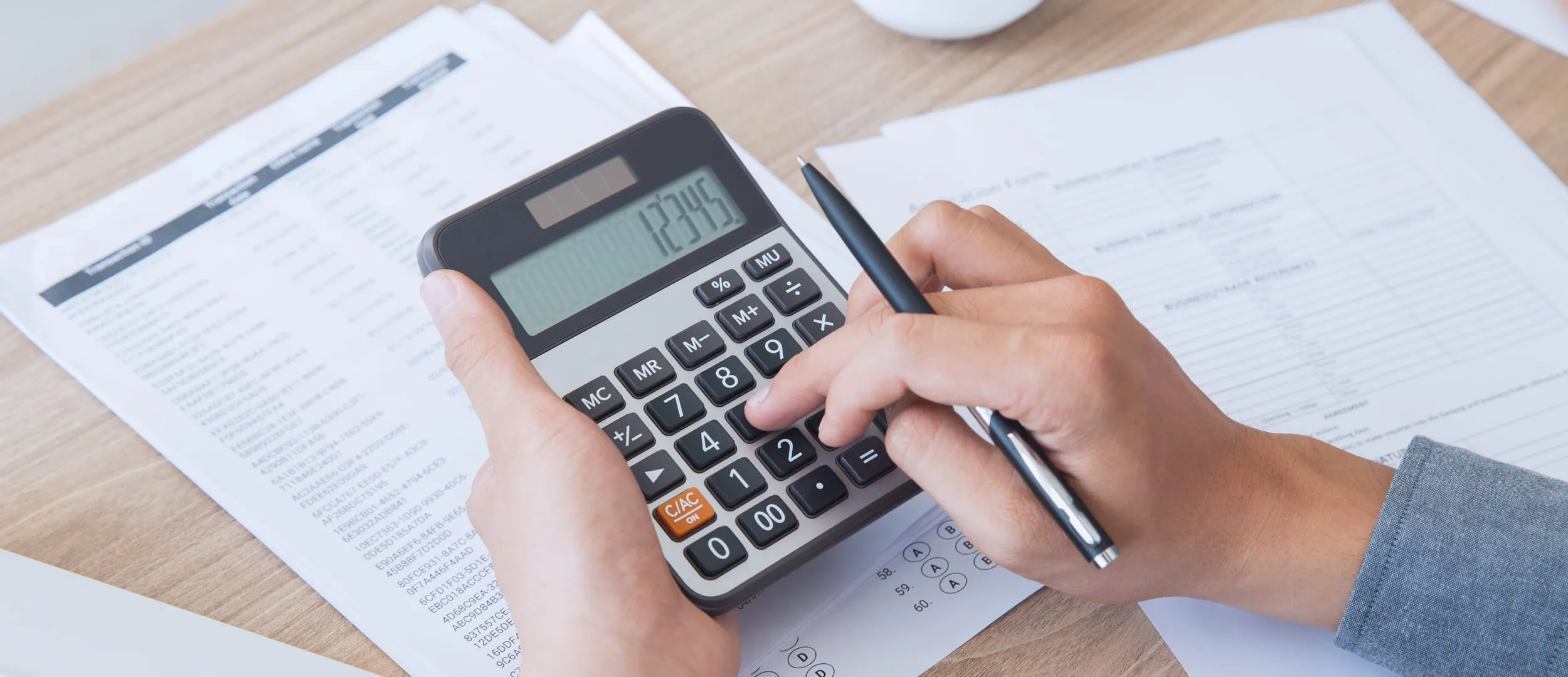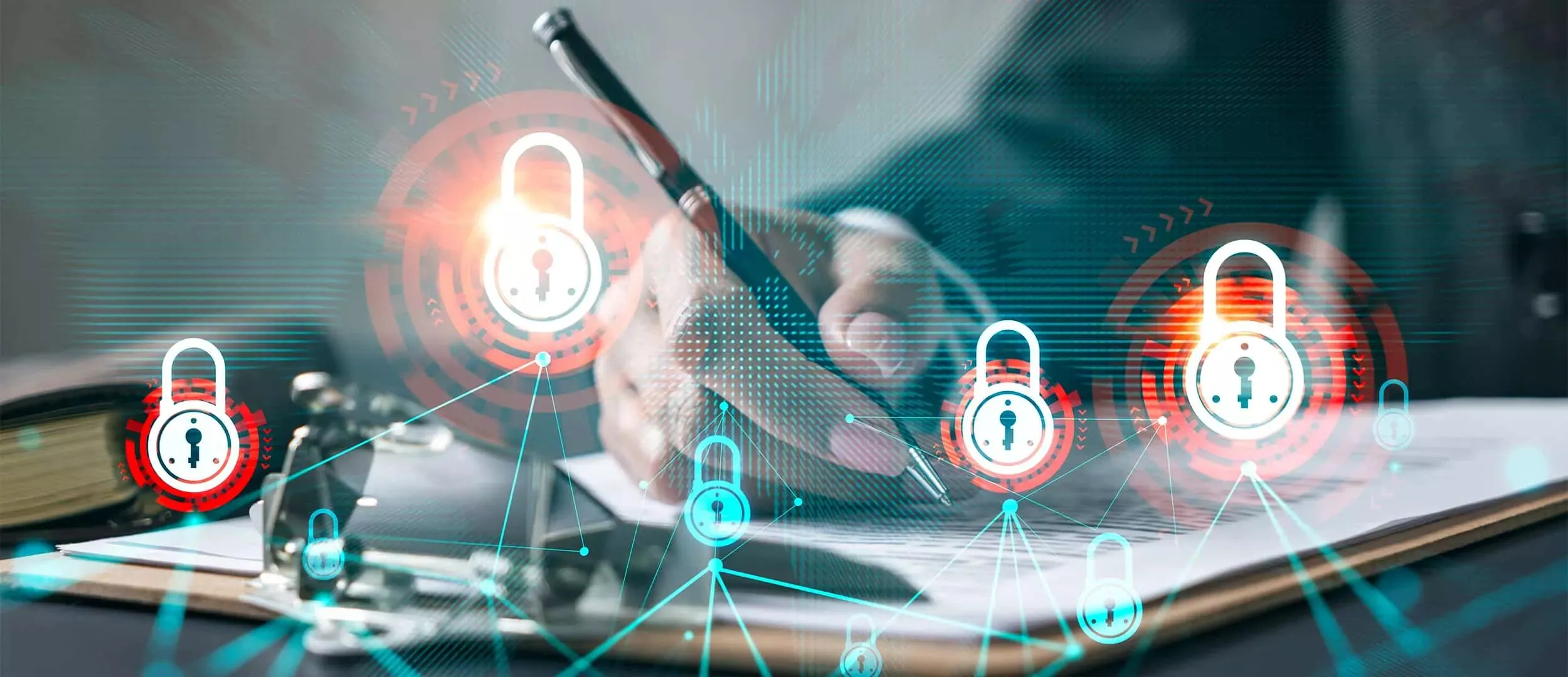
If you’re working with external teams, freelancers, or investors, NDAs are a must. Why? Like a safety net, it can save your brilliant ideas and sensitive info from being stolen even when the partnership ends. At the same time, it empowers you to share and innovate without fear of misuse of these clever ideas and sensitive information. NDA full form in software development, defines obligations and penalties, which offer businesses a secure groundwork for protecting intellectual property.
Approximately 10% of the surveyed firms indicated that some of the rules in NDAs from other companies were not legally valid. This means that some NDAs include clauses that are not legally enforceable, which carries a risk for both sides.
Our guide demystifies NDAs for app development, outlining their key provisions, uses, and potential pitfalls. You’ll learn when to use NDAs, what essential elements to include, and how to avoid common challenges. Whether you’re a business owner safeguarding your app idea or a developer navigating confidentiality agreements, this article will give you practical knowledge to protect your assets effectively.
By the end of this article, you’ll understand NDAs in-depth and gain actionable strategies to secure your projects, avoid legal risks, and foster collaborations. Let's dive in and safeguard what matters most: your innovation.
This NDA guide is informed by Stfalcon's expert insights. We want to showcase how necessary NDA can be in app development. We’ve been in development for 15 years, and robust NDA secured every client we worked together.
What is NDA?
NDA is a legal contract. Companies use it when confidential information is shared between a company and another company, suppliers, investors, employees, etc. It guarantees that a person or organization with access to details won’t disclose it. By the way, lawyers ensure that the word used in the bargaining process is rightly framed to favor their client and avoid all possible adversities.
The NDA must specify the essential terms:
- Definition of what constitutes confidential information.
- The rights and responsibilities of each party are to safeguard the information.
- The duration for which the non-disclosure agreement remains in effect.
NDAs vary from business models and development technologies to the results of tests and feedback on products. When developing mobile applications, a non disclosure agreement for mobile app development ensures that proprietary information remains confidential throughout the process. NDAs are essential in idea and data protection against leakage or misuse by third-party entities. This is particularly true when signing a non disclosure agreement for software development, where protecting early-stage ideas is vital to long-term product success.
The NDA for app development creates a framework for protecting ideas and information from being passed on to third parties or stolen. Violation of an agreement has many legal consequences, including penalties and lawsuits. Non-disclosure agreements protect your business, so even accidents are covered.
Incidentally, many lawyers write and revise NDAs because they are legal documents. They are such they frame the wording in the bargaining process appropriately so that their client is at an advantage and gets rid of adversities. Legal experts handle these details and double-check that if this agreement proves essential in court, all parties are protected, and the agreement is upheld. Here's an example of how such a document can look alike:
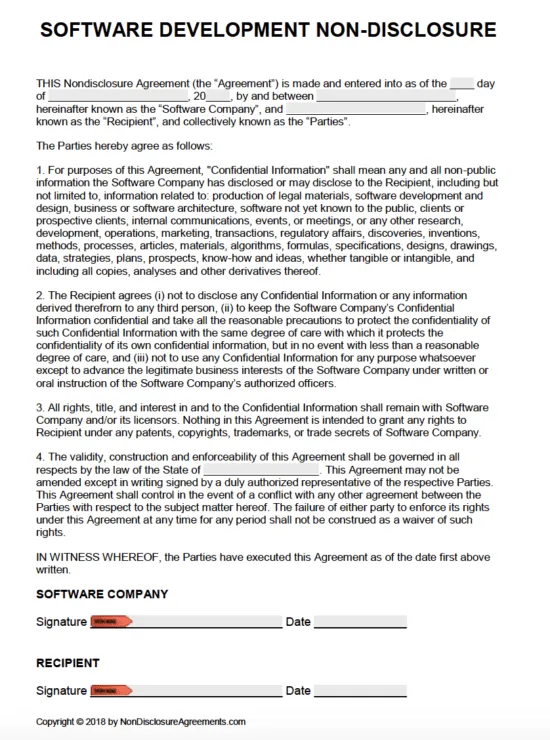
Want a web app that does more?
Let's build a solution that's smart, sleek, and powerful.
Alina
Client Manager

The Main Tasks of an NDA
There are four main tasks of an NDA:
1. Protected information definition:
The Non-disclosure agreement categorizes information when deciding what confidential details can be shared. It allows the sides to cooperate within the boundaries set by the mobile app development agreement.
2. Timeframe:
NDAs establish the duration of the secrecy undertaken. Some agreements continue unabated. Others define a time, often several years, beyond the termination of the project.
3. Other provisions:
NDAs also contain other essential provisions, among others. A detailed NDA agreement for software development ensures those provisions are fully adapted to the technical complexity of modern software projects. The scope of the agreement, return of confidential information, exceptions for information found in the public domain or previously known, and remedies upon breach. This gives complete protection to all parties in the entire process.
4. Patent protection
Public disclosure of a pending invention or information can invalidate patent rights. Software development NDA can protect the inventor while creating a concept or product.
What is Confidential Information?
Confidential information is about an individual or legal documentation in PDF or online format. It is classified and available for review among a narrow circle of people who meet certain criteria. Access to such data is also initially limited by law. They may only be distributed with the consent of the person concerned.
Confidential information is any data that makes it possible to identify a public or commercial procurement participant. These include such facts:
Personal data:
- passport details;
- residential address;
- details of relatives;
- information on the place of employment;
- income data, etc.
Commercial secrets, namely:
- technical;
- organizational;
- commercial;
- production;
- information of a different nature, except information prohibited from being classified.
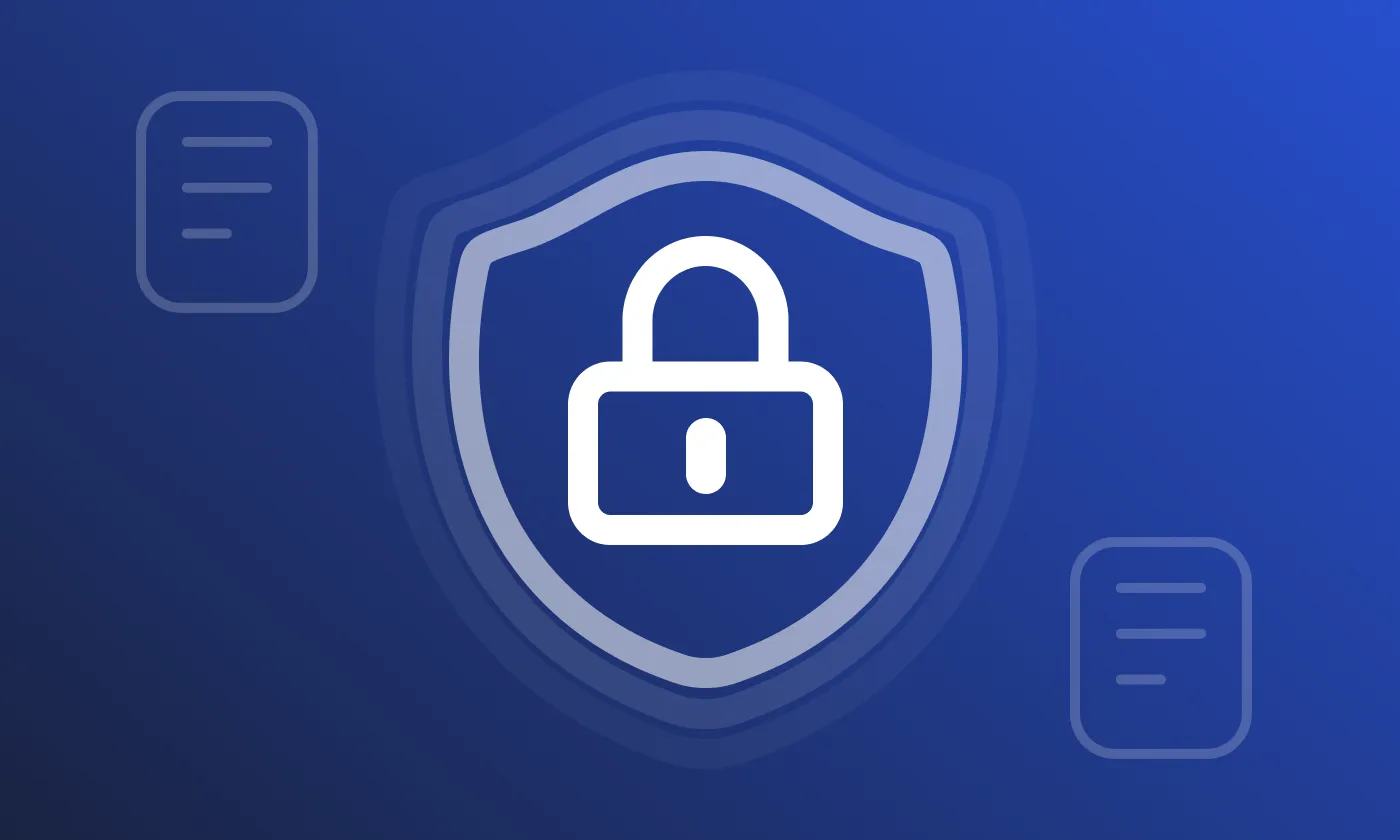
Benefits of App Development NDA
The main reason for signing a non disclosure agreement for app development is to keep information transmitted confidentially. Let’s take a look at these app NDA pros:
Fixes agreements regarding the disposal of information. In this context, a product development NDA plays a vital role in outlining what can be shared with subcontractors or tech partners. The text of the software non-disclosure agreement defines valuable commercial information and describes the rules for its transfer, disclosure, and return to the transferring party or removal at the end of the cooperation.
Provides a legal basis for filing a lawsuit. Enforceability problems with NDA and harm recovery can only be discussed if there is an agreement. By not entering into an NDA mobile app, you rob yourself of the legal basis for going to court and protecting your interests. Provides comfortable cooperation
The presence of an NDA has a disciplining effect on the sides. The non-disclosure agreement defines the information that should be dealt with “gently.” Signing an NDA gives the disclosing side the confidence to handle their secret information more responsibly.
Common Mistakes Related to App NDA
Developing app NDAs requires precision and clarity. Sometimes, businesses make many mistakes that can make the enforceability of the agreement or that promise by causing misunderstandings. Each mistake introduces risk associated with too broad terms or a poorly defined scope of confidentiality. Let’s dive into examples:
Overly broad terms. Determine the confidential information and how likely it is to do the job without disclosing it. Some tasks require the involvement of a third person. Solving your questions should be based on the data you provide. You all come to a dead end if you include this data in the list that will not be distributed. You have to consider what the subject of secret facts is for you, how it can move in the project, and who can use it.
Undefined duration. This can cause misunderstanding or a dispute if you omit the confidentiality timeframe. You must write down how long the obligations last, whether years from the project or for the rest of your life.
Lack of customization. A generic template can leave holes in protection without applying the template to a particular context. That’s why using a tailored NDA for product development is crucial — it aligns legal protections with the specifics of your project lifecycle. The NDA is tailored to match the project and the partnership or cover all relevant risks.
Unclear confidentiality scope. It is confusing if your confidential data has yet to be defined. I.e., whether it is public or already known information. Knowing what is included in confidentiality helps to avoid disputes.
When Should You Sign an NDA?
Non-disclosure agreements are crucial when sharing confidential data with third parties. They ensure that the company’s workflow will be safe.
When should you conclude an NDA? Below are five situations in which an NDA agreement for app development is required.
Products: When you sell or license a particular technology or product, the NDA will cover confidential information. F.e., financial or technical details that cannot be disclosed or transferred to another person.
Employees: Your employees have access to secret information. You must ensure they can’t share your company's sensitive data at work or after leaving.
Partners: When communicating with a new partner or investor, you must ensure that information is protected during negotiations.
New clients: When you bring in a new client, your company can own that company's non-disclosure agreement. The Non-disclosure agreement will protect your company by determining what information is confidential to avoid incidental legal liability.
Mergers and acquisitions: If you are selling your business, secret financial and operational information is shared with the company that buys your business and with intermediaries. The NDA in software ensures that your data will be protected.
Non-disclosure agreements are often applied when providing information to potential investors, entering into contracts with suppliers, and exploring venture opportunities. Yet, how to protect an app idea?
How to Protect Your App Idea?
It's best to use all available preventive methods and learn how to prevent your NDA app idea from being stolen. You have to decide what will be protected: a concept, an algorithm, a technology, or the end product. You need to analyze what phase of development you are in:
1. There is an idea;
2. The product is under development; there is a prototype;
3. There is an end product.
Another factor that you must manage is who has access to the project. If you just have an idea and seek partners, you can agree with the participants on non-disclosure unless you trust them. Verbal agreements are a way to protect the idea of an application in the early stages.
Following are the key strategies to protect your app idea throughout the development process:
1. Use an NDA: Non disclosure agreement for app idea is a good option for keeping the secret for developing the software. An NDA for mobile app development guarantees security for your data.
2. Apply for Intellectual Property protection: Patents for unique elements in an app or technology will protect intellectual property rights.
3. Document everything: Detailed records showing ideas, designs, and development processes can be used to prove ownership if required.
4. Limit exposure to critical parts of the application: Make sure only some get access to sensitive information. Limiting access to only those that need it diminishes the chances of a leak.
5. Reliable and reputable partners: Avail services from trusted development partners with goodwill for maintaining confidentiality in their work.
6. Work-for-hire agreement: While hiring developers, ensure through a work-for-hire agreement that all work they produce legally belongs to your company. You can also easily sign a developer NDA with them.
7. Lock down your codebase: Encrypt your code and use version control; do not share access with unauthorized users.
8. Provisional patent application: If your application has a new, innovative feature, a provisional patent filing will protect you at its early stage.
9. Keep marketing material general until launch: To avoid ideation, keep marketing materials general until the launch of your app.
10. Regularly monitor for infringements: Keep a watch on competitors and potential infringers to report, as soon as possible, any misuse of your intellectual property.
A software NDA is a good option, but you must understand that it doesn’t entirely give protection to an idea. You should limit the circle of persons who have access to information. So it will not be hard to prevent information leakage. To do this, use a non-disclosure agreement when selecting app development contractors. It can be the most effective approach to protecting your intellectual property.
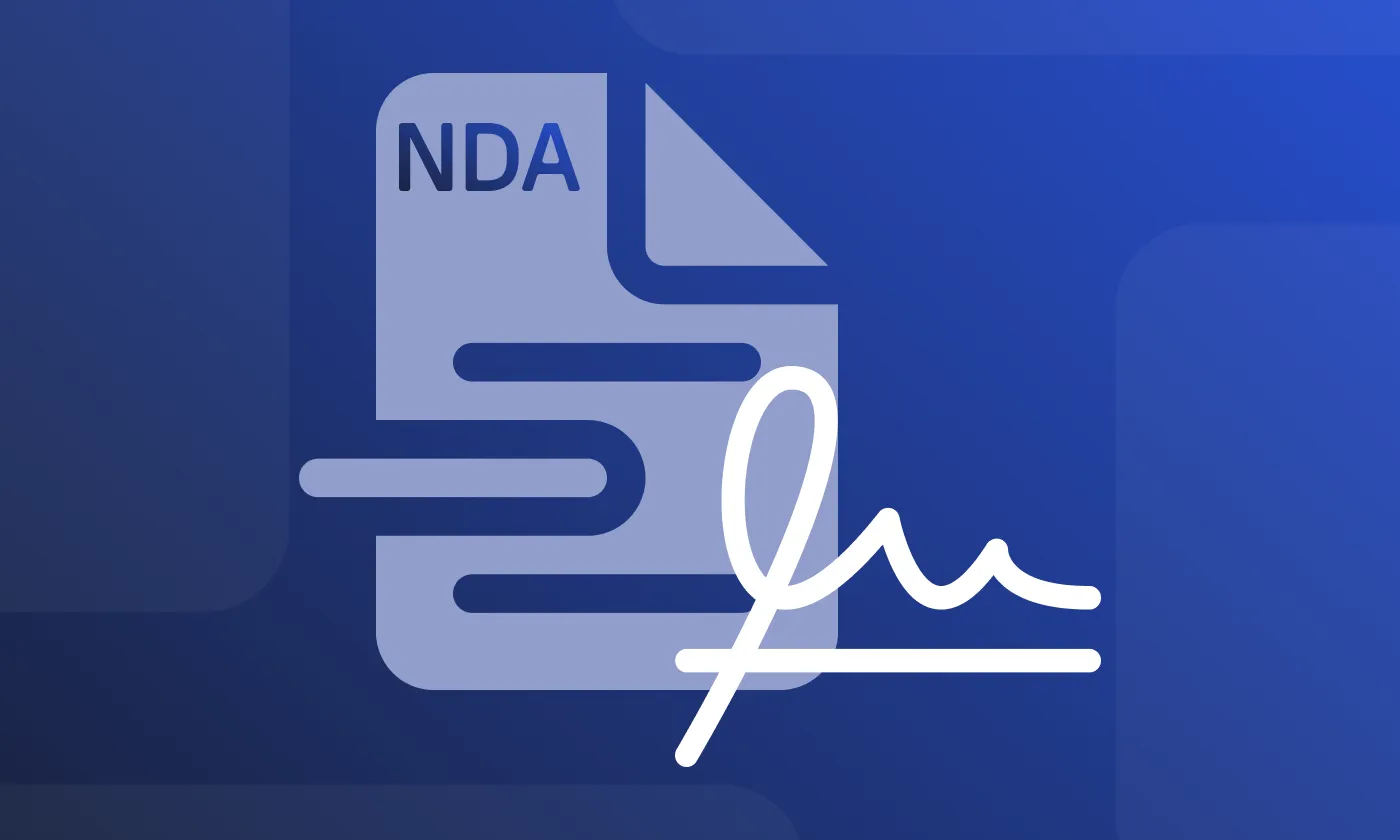
What Should be Included in the NDA to Protect Confidential Information?
Every NDA should include the following essential elements:
1. Identification of the participants: This section identifies people and/or organizations participating in an NDA. It needs to set out the names and addresses of any individuals or organizations concerned. Yet, it may also list relevant persons, such as attorneys, partners, or other interested parties.
2. Definitions: In this section, you will find the various information covered by what the agreement protects. It determines the confidential information
3. Obligations: When secret data is leaked, the non-disclosure agreement sets out the behavior for both parties. It defines the consequences of non-compliance with the agreement.;
4. Scope: Scope sets the boundary of what would be treated as confidential in the agreement. It should be definite, describing precisely what information is concerned. For example, design documents, app features, or business strategies instead of using vague terms like "service information."
5. Timeframe: Non-disclosure agreements have their timeframe, and most agreements define the years that confidential information must be secret. Even agreements with an indefinite duration often specify when data ceases to be under the agreement's protection.
6. Return of information: If the business relationship between the parties is terminated, the NDA may require the recipient to confirm that the information was destroyed or returned.
7. Exceptions: It includes public info, disclosed details, or data known before or in a financial relationship with the company.
8. Remedies: The non-disclosure agreement should describe the actions to be taken in case of violation of the agreement. It may include damages in compensation for the breach of the contract, or it may involve acts concerning the violation of intellectual property rights pertaining to a trademark, copyright, or patent.
If you have an NDA template for app development, it should be concise and understandable. You can download an NDA non-disclosure agreement template and use it in development. Just make a copy of the document and replace the data.
When to Refrain From a Non-Disclosure Agreement?
An NDA has many advantages in app development compared to other agreements. However, more than this may be needed or have some negative consequences. For instance, when applying for an NDA isn’t possible. For example:
Fundraising Stage
An NDA at this stage may be more of a disadvantage than an advantage. It's important to keep a balance here. Of course, there is a risk if you share an app idea with potential sponsors. However, stakeholders will not invest in a project if you refuse to provide details before signing the non-disclosure agreement.
Most investors would only sign NDAs after they understand the project's scope. At this point, you should talk about your app idea in general, describe the target market, and explain the technology stack. Limit sensitive information until the investor expresses serious interest and is prepared to make an official deal.
Stage of Hiring a Development Team
Using NDA software can also be problematic when you are in the early stages of hiring a development team. Potential contractors require enough information to determine if they can handle the project effectively, but too much secrecy prevents them from valuable input or feedback.
By now, it is prudent to share only high-level details about the app, without including confidential details, and to request only after candidate selection and when you're ready to formalize the engagement that an NDA be signed. Signing an NDA and a non disclosure agreement software should be ideal to keep sensitive information secure once you begin engaging closely.
How to Secure Your App Idea From Being Stolen?
1. Tell about your idea only to a limited circle of people
The simplest and, at the same time, the most effective way to protect your app idea is by sharing it only with a select group of trusted individuals. While you’ll need to collaborate with developers, designers, and other professionals, limit your communication to just the essentials and avoid disclosing unnecessary details to those who don’t need to know. This approach prevents your idea from being exposed to unnecessary risks.
2. Sign a non-disclosure agreement
This is the most legally effective way to keep your idea private. Have non-disclosure agreements with whoever can access your application, including NDA for software developer, designers, business partners, and contractors. It's a legally binding agreement where you clarify expectations of confidentiality of details and safeguard yourself in case of breaches.
3. Share information selectively
In the development process, keep in mind that everything does not need to be shared with every individual. Fragment the project and only share relevant information concerning that specific part with people involved or teams working on it. This reduces the risk of essential details getting leaked or misused by compartmentalizing.
4. Copyright and patent options
Consider copyrighting aspects of your app, either its code or UI, to protect your intellectual property. Copyrighting is a rather affordable method of protection against direct copying. If your application's functionality is new and unique, file for a patent that safeguards your idea. While the process may be lengthy and tangled in bureaucracy, it provides stronger protection for the core aspects of your app, barred from anyone having the chance to replicate your concept.
Conclusion
Companies want to feel secure when they cooperate. Assuring the parties that sensitive information will remain confidential, NDAs offer complete security where ideas can be shared without apprehension of misuse. Non-disclosure agreements become crucial in the initial stages of collaboration, such as when discussing potential projects with developers. In this case, with a clear legal framework, both parties can focus on building the project without risking information.
An NDA for software development is signed when the client tells the developers about business specifics. This usually happens when the client has already compiled a short list of companies with which it would be interesting to cooperate, but before signing the main contract.
If you have an idea for developing a mobile application, feel free to email or call us to get a free consultation. We will gladly listen to all your wishes, offer the best ways to implement your idea, and help you with mobile app NDA.

